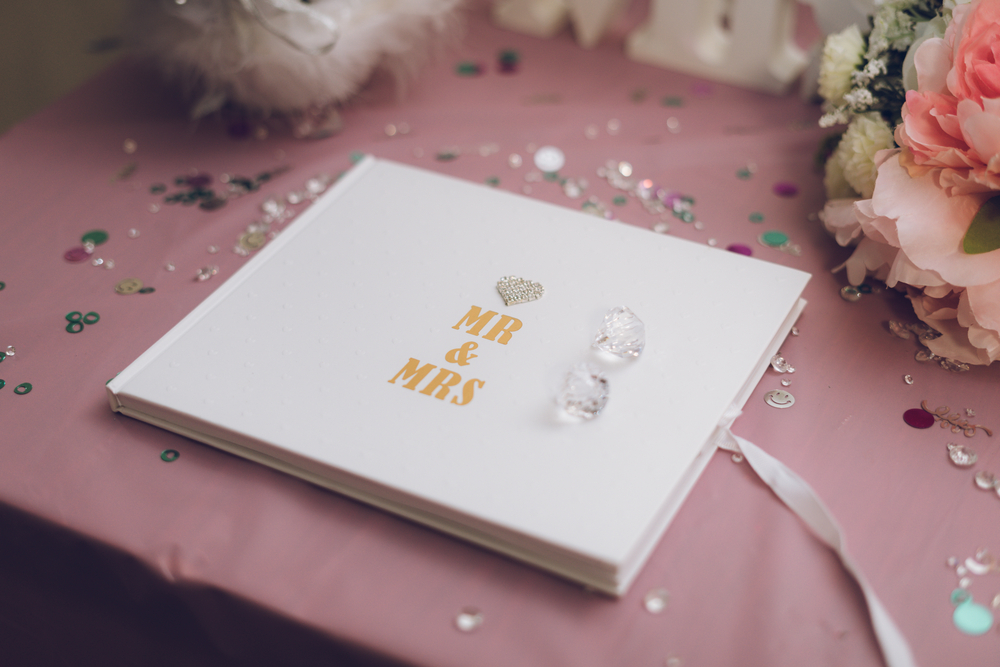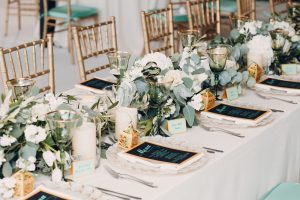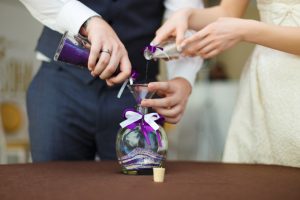When people talk of the stresses and frustrations of wedding planning, they mainly refer to the event’s financing, budgeting, and organizational aspects. Seemingly routine things, like addressing invitations, are usually considered quick and straightforward undertakings; subsequently, many planners pay little attention to them.
However, using the wrong titles in reference to your female guests can cause serious social faux pas and possibly create personal animosities. Generally, you will never go wrong with using Mr. to address men, but with women, it is crucial to know when to use Ms., Miss, and Mrs. as different women prefer to be addressed with different titles.
Below, we will explain in detail the history of the three titles used to address women in formal settings. We will then suggest when to use each title when addressing your invitations.
Miss
The word Miss gained traction in 17th-century literature as a diminutive of the word Mistress, a common title for upper-class ladies at the time. The title was – and is still – used to refer to younger, unmarried women. Although some older ladies wouldn’t mind being addressed as Miss, it is considered immature and even rude to address women above a certain age in this way.
As a rule of thumb, only use this title with younger women – mid-20s and younger – who are unmarried. Engaged women in these age brackets can also be referred to as such unless they specify differently. Otherwise, if you are unsure what title to use, go with Ms.
Ms.
Compared to the other two titles, Ms. is more modern, as it only became mainstream in the 1950s with the rise of the women’s rights movement.
It was considered the female version of Mr., and its popularity was driven by the desire of many women to be known, and accordingly described as, autonomous beings, and not in regards to their marital status. Due to this connotation, it is regarded as the most politically correct way to call any woman you don’t want to offend, whether they’re married or not.
Although it looks like a contraction of Miss, Ms. is pronounced “Mizz” (rhyming with quiz) and not miss. You can use the title for all women whose marital status is unknown. It also goes for older divorced women and single women above 25, as the other common title, Miss, is rather age-sensitive.
Mrs.
Traditionally, Mrs. was used as a prefix for all married women, regardless of age. Typically, only one name should come after the prefix – the surname of the woman’s husband. However, when the invitation is meant for both the wife and husband, you can use both the husband’s first and last name, e.g., Mr. and Mrs. Mark Doe.
Notably, an increasing number of married women prefer to use their maiden names instead of their husbands’ names, so you must also be mindful of that. It is also socially acceptable to refer to widowed women as Mrs., as a show of respect for their departed husbands. The prefix is also generally used for older women, as it is more respectful than Miss or Ms.
In Summary
The people you wish to invite to your wedding are important in your life. You wouldn’t want to sound rude or annoy them by using the wrong prefixes.
Here are some helpful addressing tips to keep in mind:
- Use Mrs., for all married women.
- When inviting couples, you can use their individual names, as in Mr. Mark and Mrs. Jane Doe, or just put the respective titles plus the husband’s surname, as in Mr. and Mrs. Mark Doe.
- For all older, unmarried women and women whose marital status you don’t know, use Ms.
- When inviting an unmarried couple, start with the man’s name followed by the woman’s. E.g., Mr. Kevin Phillips and Ms. Mary Smith.
If, after everything, you are still unsure of what a particular woman would want to be addressed, it is perfectly okay to ask them. Contrary to popular belief, you will not appear juvenile if you do so, as most women will take your consideration of their wishes to be a sign of respect.
Do you want to have your wedding on a yacht in NYC? If so, contact us today!










